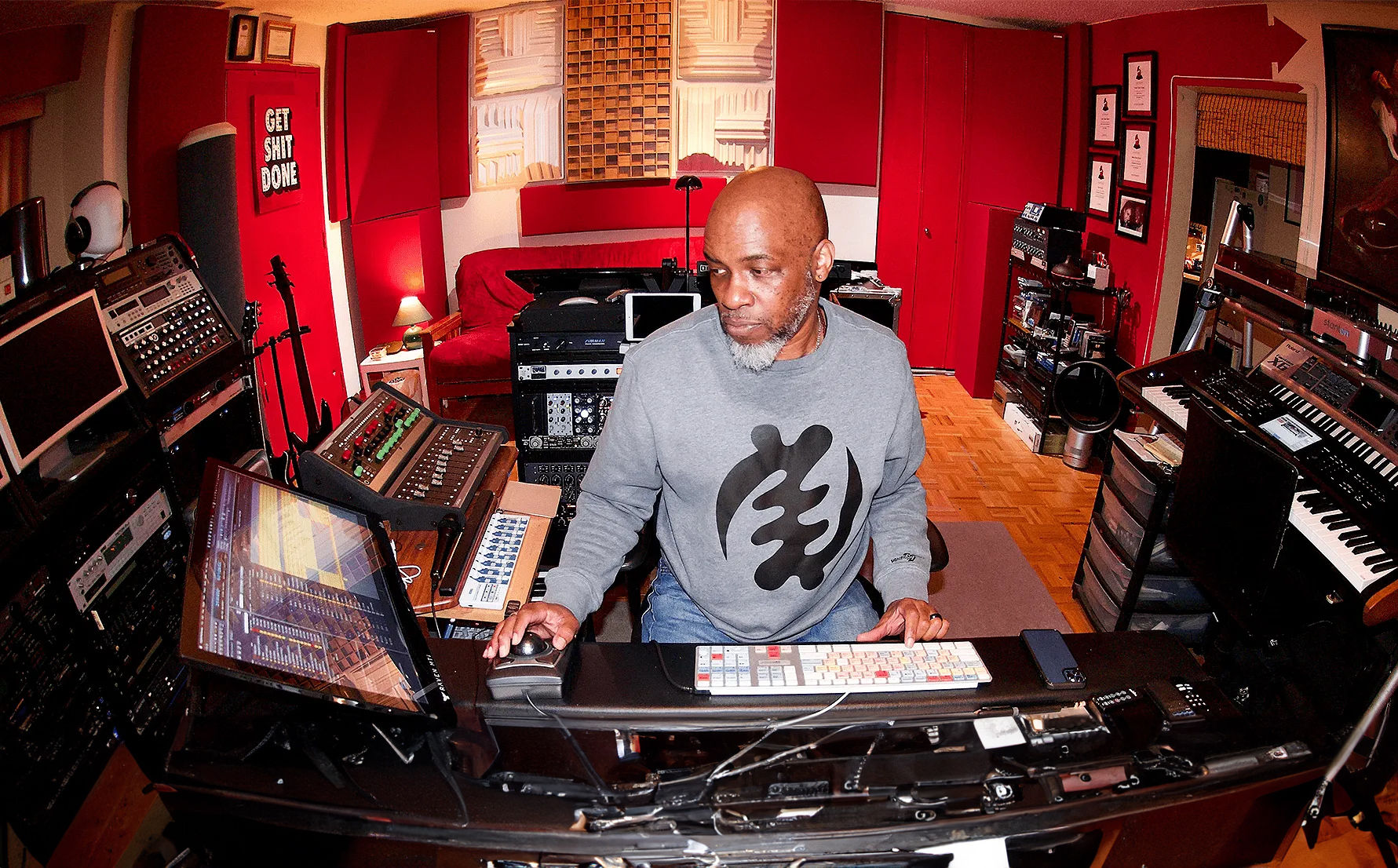

I Follow My Passion
Diversity is key in this business.
Kevin “Kwiz” Ryan
Kevin “Kwiz” Ryan is a musician, producer, composer, audio engineer, and artist development specialist from the Bronx, New York.
Kwiz's professional resume has continued to evolve and expand over 25 years with credits, including numerous GRAMMY-award-winning and platinum-selling artists. Kwiz has also operated as a recording engineer for BET’s “Black Girls Rock” award show and notably, Beyoncé, for her last five world tours, as well as her historic 2013 & 2015 Super Bowl halftime performances.
Kwiz, your resume spans over two decades. What brought you into the world of music? When and how did you start your career?
I started playing drums at an early age and dreamed that I would be a professional drummer one day. Drum machines started to dominate most music productions so I then started to teach myself how to play keys and bass. I literally fell into production because of my fascination with being in the studio and studying what recording engineers did as well as helping out with arrangements, etc. with the people I was working with.
Your portfolio is very diversified. Music production, engineering, audio programming, artist development. Where do you currently set your focus point, and how do you navigate between all these activities?
I follow my passion. I’m extremely passionate about production, so that is my main focus these days. I’m also a realist, sometimes you have to follow the money, so when programming gigs pop up, I take those as well.
And what does your company Rhythm Lab Productions specifically focus on?
Recording, producing, and mixing indie artists as well as composing music for television. I’ve done music for ABC, HBO, and ESPN and am currently working on a music library project for ESPN. I’ve had them as a client for 21 years!
And as an audio programmer, you call yourself a ‘Digital Performer.’ What exactly does this mean?
I use a DAW called Digital Performer in the studio and in live shows. I guess because I program and do playback for the live concerts, I guess I am a sort of behind-the-scenes Digital Performer, right?
How is it working as an audio programmer/ recording engineer for Beyoncé?
It’s rewarding to see how excited the fans are when seeing one of her shows. However, it’s a lot of work and long hours. She’s somewhat of a perfectionist, so 16-hour days are not uncommon. She’s the hardest-working artist that I know, but she brings out the best in you. I’m extremely proud to have her as a client!
What’s your studio setup like, and what’s really essential to you?
I have a hybrid studio. I still use a console and analog outboard gear as well as many plugins and multiple DAWs. I also still use certain hardware synths to create layers of sounds in my productions. Having analog gear is essential to me, especially pre-amps and compressors. With that said, plugins like SurferEQ 2 and POWAIR are essential in my work because of the unique way they help me shape my sound.
And how do you choose and value new plug-ins?
Ease of use and sonic impact. If I can’t dive right into a plugin without reading the manual, I don’t want to use it. Not that I don’t read manuals, but I like to work fast and efficiently, so ease of use is really important. Next, if the plugin doesn’t sound good, I remove it from my arsenal. That’s why trial versions are important.
Please break down the usage of Sound Radix plug-ins in work.
I love using SurferEQ 2 on vocals! It’s a great-sounding EQ in general, but when using it in “Surf Mode,” it takes EQ’ing to another level because of how you shape the harmonics by chasing them. That’s next-level sh&t!! I also use POWAIR, which is hands down the most transparent compressor in my arsenal. It sounds great on all sources, but I love to use it on drums and bass! That thing makes everything sound good in almost any setting without killing the transients! It’s a must-have, in my opinion.
We'd love to hear in which songs/ albums you used our plugins and how.
I produced a socially conscious album called “The Black Light Chronicles.” There’s a song on it called “After Amen,” written by the incredible Tiffany Moníque, who happens to be Beyoncé's lead background vocalist.
POWAIR is on the drum bus, and some of the percussion. And SurferEQ 2 is on the vocal tracks.
You can also hear SurferEQ 2 and POWAIR on the vocals and drums for “I want your heart” by Richmond Izard, an amazing indie artist that I mixed for.
What advice would you give to newcomers to the industry?
Diversity is key in this business. Learn all that you can about any and everything regarding music production. I would’ve never had the opportunity to have Beyoncé as a client if I hadn’t learned audio engineering and how to use Digital Performer.
Being a producer is just one aspect of my career. For instance, during the pandemic, I also started to teach music production.
Connect with Kwiz
https://www.kwiztronic.com/
https://www.instagram.com/kwiz1
https://twitter.com/kwiz1





























